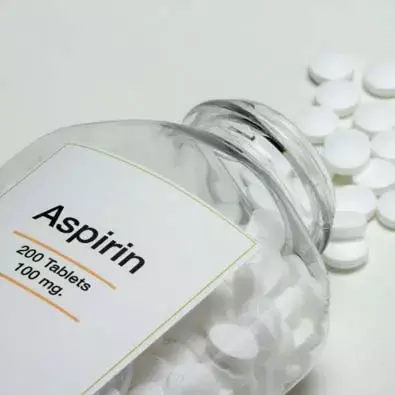- Home
- Medical news & Guidelines
- Anesthesiology
- Cardiology and CTVS
- Critical Care
- Dentistry
- Dermatology
- Diabetes and Endocrinology
- ENT
- Gastroenterology
- Medicine
- Nephrology
- Neurology
- Obstretics-Gynaecology
- Oncology
- Ophthalmology
- Orthopaedics
- Pediatrics-Neonatology
- Psychiatry
- Pulmonology
- Radiology
- Surgery
- Urology
- Laboratory Medicine
- Diet
- Nursing
- Paramedical
- Physiotherapy
- Health news
- Fact Check
- Bone Health Fact Check
- Brain Health Fact Check
- Cancer Related Fact Check
- Child Care Fact Check
- Dental and oral health fact check
- Diabetes and metabolic health fact check
- Diet and Nutrition Fact Check
- Eye and ENT Care Fact Check
- Fitness fact check
- Gut health fact check
- Heart health fact check
- Kidney health fact check
- Medical education fact check
- Men's health fact check
- Respiratory fact check
- Skin and hair care fact check
- Vaccine and Immunization fact check
- Women's health fact check
- AYUSH
- State News
- Andaman and Nicobar Islands
- Andhra Pradesh
- Arunachal Pradesh
- Assam
- Bihar
- Chandigarh
- Chattisgarh
- Dadra and Nagar Haveli
- Daman and Diu
- Delhi
- Goa
- Gujarat
- Haryana
- Himachal Pradesh
- Jammu & Kashmir
- Jharkhand
- Karnataka
- Kerala
- Ladakh
- Lakshadweep
- Madhya Pradesh
- Maharashtra
- Manipur
- Meghalaya
- Mizoram
- Nagaland
- Odisha
- Puducherry
- Punjab
- Rajasthan
- Sikkim
- Tamil Nadu
- Telangana
- Tripura
- Uttar Pradesh
- Uttrakhand
- West Bengal
- Medical Education
- Industry
Aspirin for Primary Prevention of ASCVD in Women- What guidelines say

USA: A recent article, published in the Journal of the American Medical Association (JAMA) provides insights into the guidelines on aspirin for the primary prevention of atherosclerotic cardiovascular disease in women.
Aspirin's role in the secondary prevention of atherosclerotic cardiovascular disease (ASCVD) is well established in both men and women. However, the use of aspirin for primary prevention has been controversial. The US Preventive Services Task Force (USPSTF) in its recently released recommendations has advised against aspirin use for primary prevention of ASCVD in adults 60 years or older with no differences in treatment effect or guidance by sex.
The updated recommendations are based on pooled analyses of 13 randomized clinical trials for primary prevention, including a total of 161 680 participants without a history of ASCVD, of whom 53% were women.
Given below is the summary of current guidelines for aspirin in the primary prevention of atherosclerotic cardiovascular disease:
All guidelines emphasize shared decision-making with consideration of cardiovascular benefit vs increased risk of bleeding
US Preventive Services Task Force 2022
- Low-dose aspirin (<100 mg/d) may be considered for those aged 40 to 59 y who have an estimated 10-year ASCVD risk ≥10%.
- Advises against the use of aspirin for primary prevention of ASCVD in adults >60 y.
American College of Cardiology/American Heart Association 2019
- Aspirin should be used infrequently in the routine primary prevention of ASCVD.
- Low-dose aspirin (75-100 mg/d) might be considered for primary prevention of ASCVD among select adults aged 40 to 70 y who are at higher ASCVD risk (>10% 10-y risk) who are not at increased risk of bleeding.
- Not recommended in adults >70 years or any individual at an increased risk of bleeding.
European Society of Cardiology 2021
- Aspirin is not recommended in individuals with low/moderate ASCVD risk due to the increased risk of major bleeding.
- For persons <70 years of age with (very) high ASCVD risk; decision should be case-by-case taking into account both ischemic and bleeding risk.
American Diabetes Association 2022
- Low-dose (75-162 mg/d) aspirin should be considered for prevention of ASCVD in adults older than 50 years with diabetes and at least 1 major ASCVD risk factor and not at increased risk of bleeding.
- For patients older than 70 years with or without diabetes, the risk appears greater than benefit.
The researchers summed up by saying that, "low-dose aspirin in the primary prevention setting reduces risk of major ASCVD, MI, and ischemic stroke, but increases the risk of total and major gastrointestinal bleeding in men and women."
"Although current recommendations do not differ by sex, low-dose aspirin should be considered for primary prevention for women aged 40 to 59 years with elevated ASCVD risk (10-year ASCVD risk ≥10%) and for women aged 60 to 69 years with ASCVD risk of at least 20% or with diabetes and ASCVD risk of at least 10%, in the context of no excess risk of bleeding and shared clinical decision-making."
Reference:
Shufelt CL, Mora S, Manson JE. Aspirin for the Primary Prevention of Atherosclerotic Cardiovascular Disease in Women. JAMA. Published online July 25, 2022. doi:10.1001/jama.2022.11951
Dr Kamal Kant Kohli-MBBS, DTCD- a chest specialist with more than 30 years of practice and a flair for writing clinical articles, Dr Kamal Kant Kohli joined Medical Dialogues as a Chief Editor of Medical News. Besides writing articles, as an editor, he proofreads and verifies all the medical content published on Medical Dialogues including those coming from journals, studies,medical conferences,guidelines etc. Email: drkohli@medicaldialogues.in. Contact no. 011-43720751


